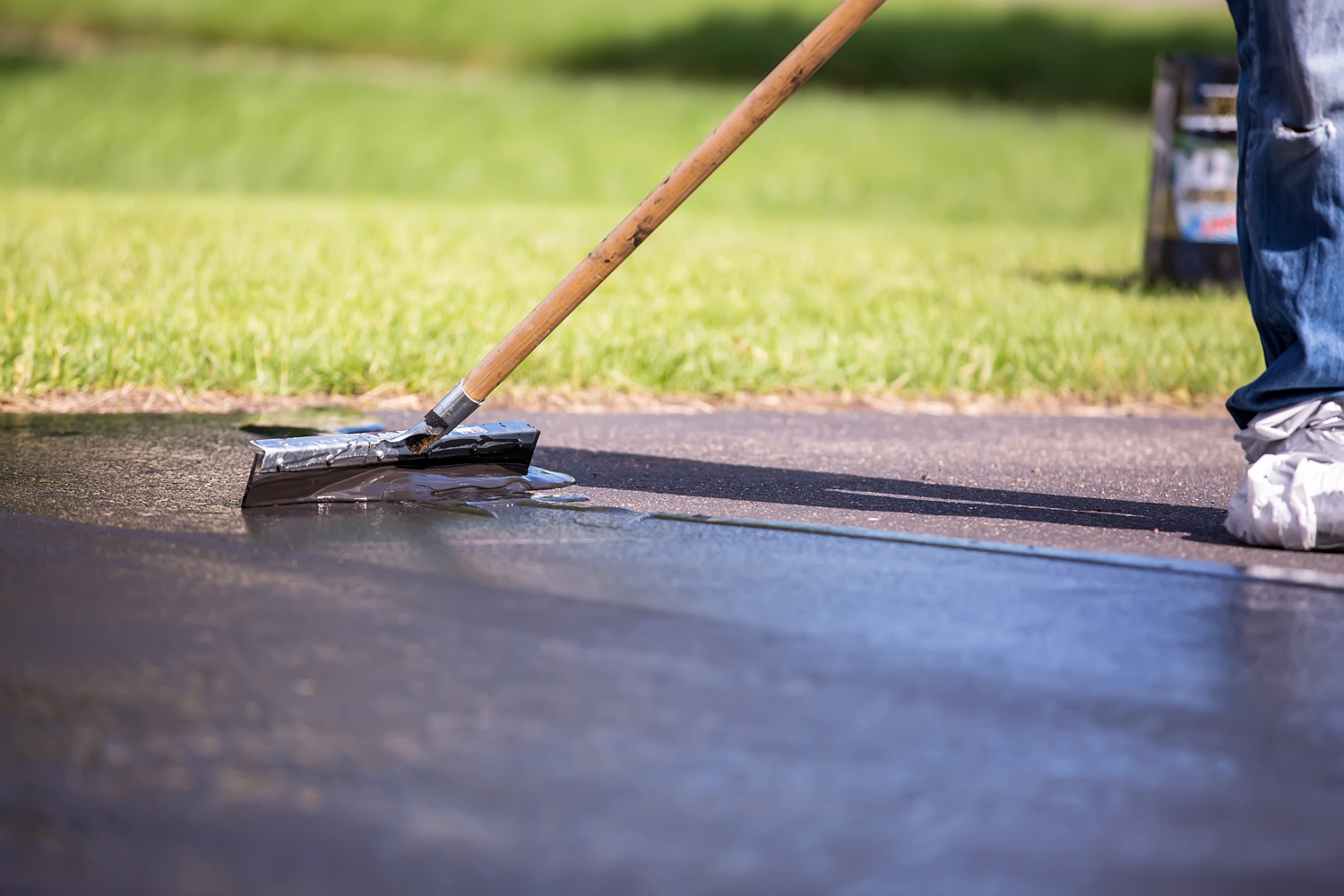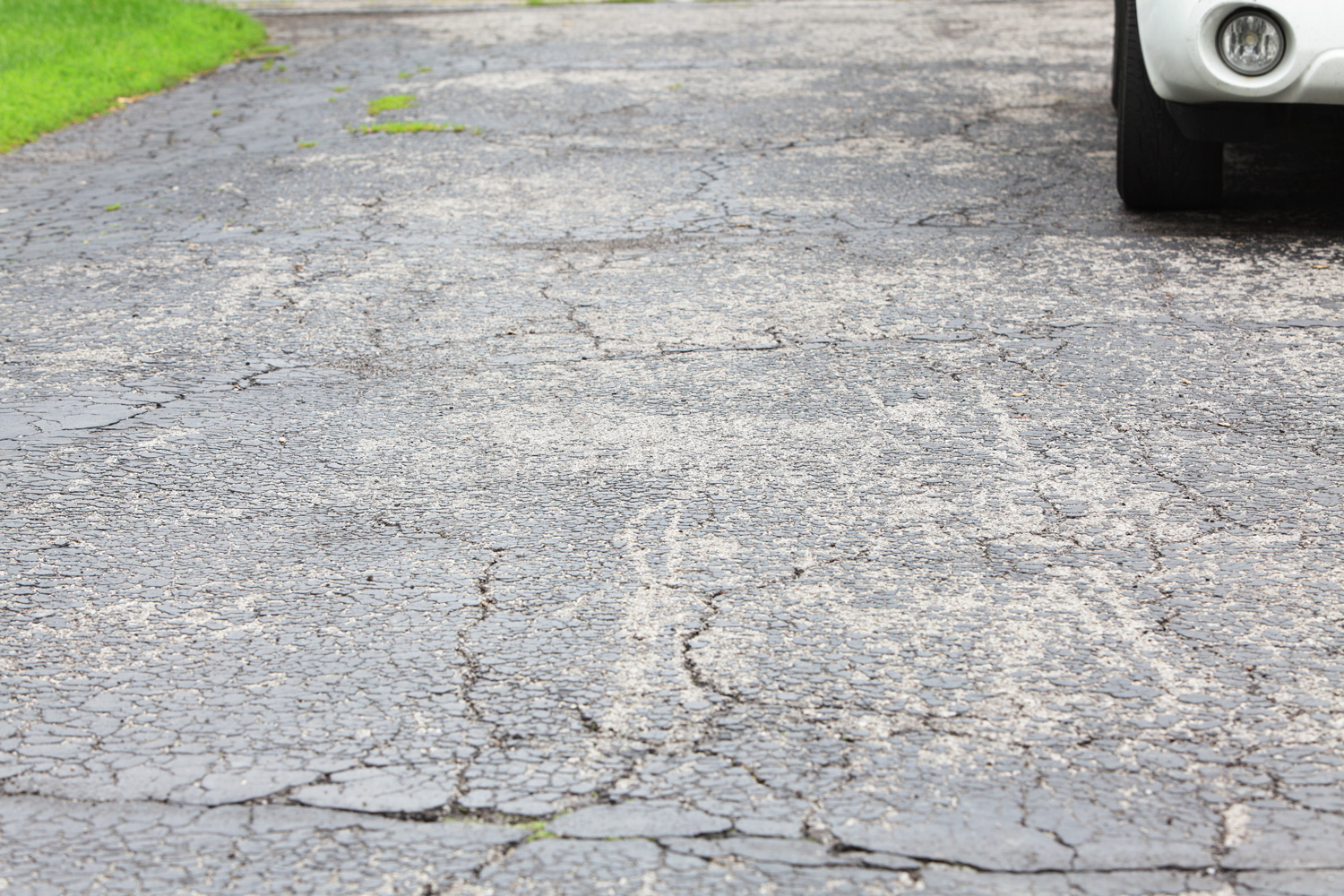Your home's driveway is made to last; with a poured concrete driveway, you can count on it lasting for the life of your home. However, concrete and asphalt driveways have a weight limit that needs to be considered. So let's look at how much weight a driveway can hold.
Typically, driveways are poured 4 inches thick and can withstand 8,000 pounds. This means that it is usually strong enough for a regular-sized family vehicle.
However, If you plan to have commercial vehicles on your driveway regularly, you will need to pour a thicker slab to prevent damage.
In this article, we will take a closer look at the weight limit of driveways and how to know if your driveway can accommodate the weight of your vehicles. In addition, we will answer other frequently asked questions about residential driveways, so read on!

How Thick Should A Driveway Be?

We sometimes add affiliate links and content that was curated and created by our team with the help of advanced ai tools to help showcase the best design styles.
The thickness of your driveway is determined by the type of traffic using it. Most city codes require your residential driveway to be a minimum of 4 inches thick which can withstand around 8,000 pounds.
However, if you have commercial vehicles using your driveway regularly, you will need to pour a thicker slab (6 inches or more).
For the common family vehicles, 4 inches is typically strong enough. But, if you have a heavy-duty truck or an RV, you need to consider the weight of those vehicles when deciding on the thickness of your driveway.
Commercial trucks such as concrete mixers or dump trucks can weigh up to 80,000 pounds. So if you want to add a concrete slab to your backyard, you should use something different to haul the concrete.
If you have a driveway poured, be sure to ask the contractor what thickness they recommend for your particular situation. Explain to them what you plan on using the driveway for, and they will be able to give you a more accurate estimate.
They may recommend doing a 6-inch thick driveway if you plan on having commercial vehicles on it or an RV. However, if you can fit it into your budget, it is better to do a thicker driveway from the start.
That way, you don't have to worry about cracking or breaking in the future.
Is Concrete Or Asphalt Better For The Driveway?

There are pros and cons to both concrete and asphalt driveways. So it comes down to personal preference and what you are looking for in a driveway.
First, however, let's look at the benefits of each type of driveway.
Cost And Longevity
Concrete driveways are more expensive than asphalt, but they last longer. So you can expect to pay $4-$6 per square foot for concrete, whereas asphalt is only $2-$4 per square foot.
However, a concrete driveway can last 50 years or more when taken care of. On the other hand, an asphalt driveway might only last you 30. That is a big difference if you plan on staying in your home for a long time.
Maintenance
Asphalt driveways are easier to maintain than concrete. However, you will need to seal your within six months to a year after the initial installation. In addition, you should seal an asphalt driveway every 3-5 years to keep it in good condition and prevent it from cracking.
A concrete driveway doesn't have to be sealed but to increase its longevity, you can reseal it every 4-10 years, depending on the type of sealant used.
One downfall about concrete repairs is that they are tough to repair even by a professional. If a concrete driveway cracks, you will either have to replace the whole thing or live with the crack.
Appearance
Concrete driveways come in many different colors and styles. You can also add stamps and other design features to your concrete driveway to give it a unique look.
Asphalt driveways are typically black but can be dyed to look like concrete. However, you are limited in the design features that you can add to an asphalt driveway.
Temperature
Concrete driveways hold up better in sweltering temperatures compared to asphalt. Asphalt can become soft and sticky in the heat, leading to cracks and potholes.
On the other hand, concrete doesn't do well in frigid temperatures. It can become brittle and crack when the temperature dips too low. In addition, it doesn't fair well against road salts used to melt ice in the winter.
On the other hand, asphalt does well against the cold and road salt. So if you live in an area with harsh winters, asphalt might be the better choice.
Now that you know the pros and cons of each type of driveway, you can decide which one is right for you. It will come down to the weather in your region, budget, and desired appearance.
Is It Possible To Ruin A Driveway?
When it comes to caring for your driveway, there are some things you should do and other things you should avoid. Let's look at some of the worst things you can do to your driveway and how to avoid them.
Poor Installation
Choosing a reputable company to install your driveway is as important as your selected materials. A poor installation can lead to cracks, uneven settling, and drainage problems.
Be sure to do your research when choosing a company and ask for references. You should also make sure they are properly licensed and insured.
Heavy Loads
As mentioned earlier, asphalt and concrete driveways can only handle so much weight. So be sure to keep this in mind when planning any additions to your home.
If you aren't sure if your driveway can handle the weight, park the heavy on the street instead.
No Sealcoating
Sealcoating is an integral part of maintaining your driveway, yet many homeowners skip this step. Sealcoating helps protect your driveway from the elements and extends its lifespan.
If you don't seal coat your driveway often, you are just asking for cracks and other damage.

Road Salts
Road salt is great for melting ice on your driveway, but it can also wreak havoc on the concrete or asphalt. So be sure to sweep up any excess salt before it has a chance to do damage.
In addition, you should try to avoid using deicing chemicals as much as possible. These can be even more damaging than road salt.
Water Damage
One of the most common ways that driveways become damaged is from water. Unfortunately, water can seep into cracks and cause them to expand. It can also lead to potholes and other damage.
To avoid water damage, repair any cracks as soon as possible. In addition, you should try to keep your driveway clear of any standing water.
Tree Roots
Be careful as to where you plant trees near your driveway. Tree roots can grow under the pavement and cause it to buckle and crack.
In addition, before pouring your driveway, be sure to have the area checked for tree roots.
Metal Shovels
Never use a metal shovel on your driveway. Metal can scratch the surface and leave behind permanent damage. If you must shovel snow off your driveway, use a plastic or rubber shovel.
Studded Tires
Studded tires are great in the winter, but they can do severe damage if you have an asphalt driveway. The metal studs can tear up the surface of your driveway and leave behind holes.
Oil Spills
If your vehicle is leaking oil, clean it up as soon as possible. Oil can stain your driveway and be challenging to remove, but it can break down the driveway.

When Is The Best Time To Seal A Driveway?
The best time to seal a driveway is late spring or early summer. This will give the sealer plenty of time to dry and cure before the winter weather hits. It is good to reach out to a company early to get on their schedule.
Talk to the company about the sealer they recommend for your driveway. They will also be able to give you an estimate of how much it will cost.
Hiring someone to seal your driveway can be costly, but it's worth it to extend the lifespan of your pavement.
Final Thoughts
While driveways are built to last decades, they can still fall victim to damage. So be sure to avoid these common mistakes to keep your driveway looking its best.
By avoiding heavy loads, using a sealer, and being careful with road salt, you can keep your driveway in tip-top shape. In addition, be sure to repair any cracks as soon as possible to avoid further damage.
Made it to the end? Here are other articles you might enjoy:
How To Fill The Gap Between Driveway And Garage
Should A Driveway Be Dry Before Sealing It? [And How Long To Wait!]
Should The Driveway Be Higher Than The Lawn? [And What Type Of Border To Use!]




For sure be careful with tree roots! I just spent a lot of money getting my driveway replaced because of tree roots ruining it and causing it to crack. Save yourself a lot of money and do not plant any large tree near your concrete!
My driveway has been put to the test. We maneuver heavy machinery on and off of it and it has held up great for 15 years. There is on crack in it but i would say that is very good due to the heavy loads. It all starts with hiring the right contractor to do the job the right way!
The durability of the concrete depends on the installation. Regardless of what you are pouring, you should have at least 4 inches of concrete for “dead” and “live” loads!
The weight capacity of your driveway is a critical consideration for homeowners, and this article delves into the topic beautifully. Understanding how much weight your driveway can bear is essential for preventing damage and ensuring safety. The article provides practical insights into the factors affecting weight capacity, including the type of materials used and the thickness of the driveway. It’s a helpful resource for anyone planning to use their driveway for heavy vehicles or equipment. Knowing your driveway’s weight-bearing capacity is crucial for maintaining its integrity and avoiding costly repairs down the road.